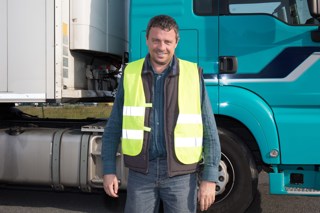The commercial fleet industry is hoping to secure changes to the apprenticeship levy after securing Government cash to tackle the driver shortage.
The Government has pledged a grant of £1 million to support Road to Logistics – a not-for-profit scheme founded by the Road Haulage Association (RHA) in association with telematics company Microlise.
The Road to Logistics programme aims to support those who may find it difficult to get permanent jobs, such as services veterans, ex-offenders and the long-term unemployed, by putting them on a path to a career in transport.
The investment, from the Department for Transport (DfT), will enable logistics companies to run essential skills training for these groups, including within the prison system, and help the industry to solve a nationwide shortage of drivers.
Transport secretary Grant Shapps said that, considering the role the transport sector plays in transporting more than 1.4 billion tonnes of goods across the country every year, Government needed to ensure it is “fit for the future”.
“Not only will this new programme help make this industry stronger, but it will help pave the way for those who may be struggling to secure a permanent job and turn their lives around,” he said.
Following a successful trial with HM Prison Sudbury and other jails across the UK, Road to Logistics aims to train up to 300 drivers in the first year.
The scheme will link potential drivers with employers, mentor them and put them through the necessary training, including taking their HGV driving test.
Estimates suggest a shortfall of more than 60,000 qualified drivers in the UK, with the number of unfilled vacancies increasing by 50 each day.
Age is a major factor, with a quarter of the workforce due to retire in the next 10 years, thanks to the average UK driver age being in the 50s.
However, the cost of getting a HGV licence – around £3,000 – remains a barrier for young people entering the profession, and poor parking facilities do nothing to improve their perception of the industry.
RHA chief executive Richard Burnett said: “The future of the UK road transport industry depends on its drivers and right now we’re facing a shortage of approximately 60,000.
“Road to Logistics will go some way to resolving this while at the same time supporting ex-offenders, the long-term unemployed and individuals from other disadvantaged backgrounds.”
Microlise executive director, Bob Harbey, added: “The shortage of HGV drivers is a massive threat to the economy. Without them, the wheels of the UK road transport industry will, quite literally, grind to a halt.
“The next stage is to focus on unlocking the apprenticeship levy for our sector.”
The International Road Transport Union (IRU) and the Freight Transport Association (FTA) say the high cost of training can put people off entering the profession. They also believe changes to the apprenticeship levy could help deliver a boost in driver numbers.
Employers, with an annual salary bill of more than £3m must pay the levy, which in the current tax year is set at 0.5% of their total pay.
However, the training tax has been criticised for failing to deliver, including for the commercial fleet industry. In total, there were 375,800 apprenticeship starts in the 2017/18 financial year, down 26% on 2016/17.
A recent report from the Public Accounts Committee, which highlighted the scheme’s failings, blamed the Government’s focus on higher-level apprenticeships. It wants the scheme overhauled so more benefit.
The FTA says its members are only claiming back a small proportion of the money they contribute under the levy, because the apprenticeships are not suited to their training needs.
FTA head of UK policy Christopher Snelling wants to see the apprenticeship levy turned into a training levy, so the commercial fleet industry can use funds to “deal with the skills shortage we face”.





















Login to comment
Comments
No comments have been made yet.